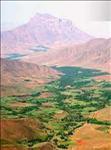
Tuyserkan (Persian: تویسرکان, also Romanized as Tūyserkān, Tooyserkan, Tūīsarkān, and Tūysarkān) is a city in and capital of Tuyserkan County, Hamadan Province, Iran.
At the 2006 census, its population was 42,520, in 11,802 families.
Tuyserkan is located about 100 km south... More
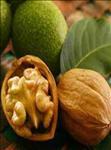
... More
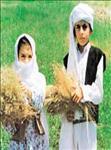
... More
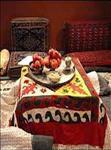
... More
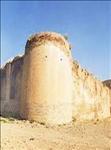
r era Tuyserkan city is the geographical location and the size of one of the castle is considered rare in the province.
The castle is one of the most beautiful places in the past and are important because they are one ha of infrastructure, including the construction yard and the exterior... More
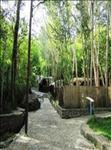
Kamar Basteh natural Park with an area about 15,000 square meters has tourist attractions such as historic trees which are growing together around the circle with a radius about three meters.
These trees with straight stem at about 30 meters are soaring above the sky. Some experts believe that ... More
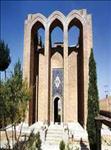
Mir Razi-o-Din Artimani is one of poets and mystics of the Safavid era. He was born in the village of Artiman in the second half of the tenth century AD.
After his childhood, he travelled to Hamadan and Esfahan where the world of science and art is. Razi returned to his birthplace Artiman durin... More
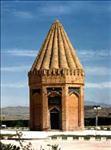
Heyquqe Nabi is one of the twelve prophets. Heyquqe means to be embraced in Hebrew Language. This tomb is one of the oldest monuments of Iran.
It belongs to Seljuk period in the sixth century AD.
The building is octagonal-shaped tower and it has a pyramid-shaped dome with 16 gaps. It should... More
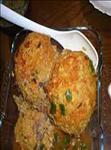
Pea Kofta is one of the several traditional and local foods of Toviserkani people.
The ingredients for 4 or 6 persons:
The kernel of ham meat: 500 G
Pea: 400 G
Egg: 1
Hot onion: 2 table spoons
Sauce: 1 tablespoon
Vinegar: half of a glass
Grape's extraction: ha... More
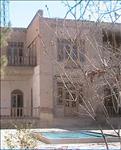
Masoudi house is the name of a mansion which is located in the north side of the Toviserkan city. Museum of the culture and History of Toviserkan is placed inside this mansion.
According to the inscription which is in the mansion, history of this building dates back to 1290 AH. It is also relat... More
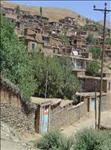
At a distance of 25 km to Toviserkan city, there is a beautiful village named Gashani village. Gashani is a mountainous zone which has valleys, heights and gardens.
Due to this feature, it also has environmental quality and picturesque views. It is said that Gashani's antiquity is over 500 year... More
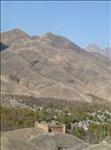
Oshtoran village is located between mountainous axis of Hamadan to Toviserkan, at the distance of 27 km of Hamadan and 21 km of Toviserkan. Oshtoran village has suitable context and historical places such as Hamze Khan Fortress and four remained mansions from Khans in Qajar era.
This building i... More
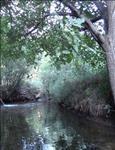
... More
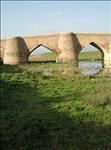
Farasfaj is the name of a bridge which is located in Farasfaj village, one of the environs of Toviserkan city. History of this bridge belongs to Safavi d era.
It is considered as a connecting zone among several villages. This bridge was very important in past because it was the connection betwe... More
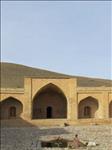
Farasfaj Caravansary with an area of almost 4000 square meters is located at the distance of 23 km of the southwest of Toviserkan. This Caravansary is one of Caravansaries of Safavid era.
It is known as Shah Abbasi caravansary. This unique caravansary had been the resort for caravans, traders a... More
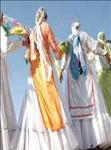
asanī dialects in northwestern Fars. These dialects, together with the Lori dialects of Lorestan (e.g.
Khorramabadi Dialect), are referred to as the “Perside” southern Zagros group, or Lori dialects. "Luri and Bakhtiari are much more closely related to Persian, than ... More
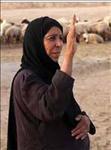
tinct dialects unique to their areas. Shushtari, Dezfuli and Behbahani are other dialects spoken in khuzestan.
It is also not uncommon to find people able to speak a variety of indigenous dialects in addition to their own.
Reference : wikipedia.org... More
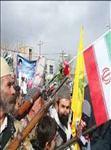
tinct dialects of this Language. "Lur-e-Bozourg" (Greater Lur), which is spoken by the Bakhtiaris, and "Lur-e-Kuchik" (Lesser Lur), spoken by the Lurs themselves.
People in Borujerd speak in Borujerdi Dialect, a local Lori Persian Dialect which is extracted from Luri.
Northwest of Lore... More
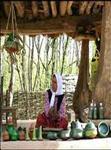
three dialects: Western Gilaki, Eastern Gilaki, and Galeshi (in the mountains of Gilan).
Furthermore, the Gilaki Language is closely related to Mazanderani, and the two languages have similar vocabularies.
The western and eastern dialects are separated by the Sefid River. Accord... More
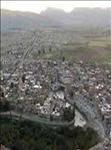
(Jaf) dialects of Kurdish, and are respectively adherents of Shia Islam, Yarsanism and Sunni Islam.
Reference: www.wikipedia.org... More